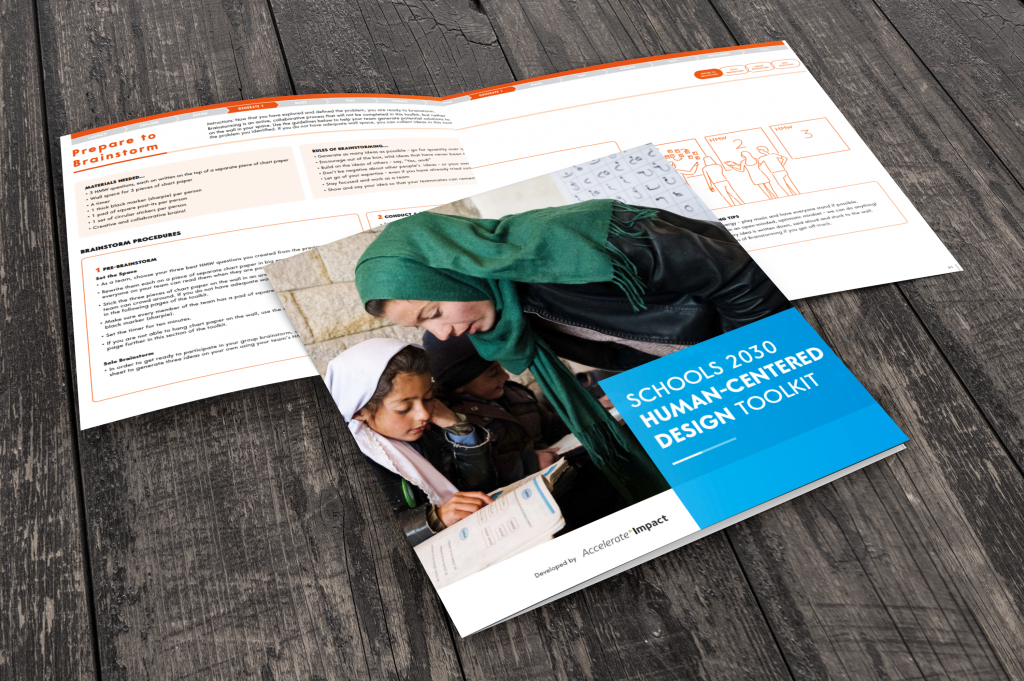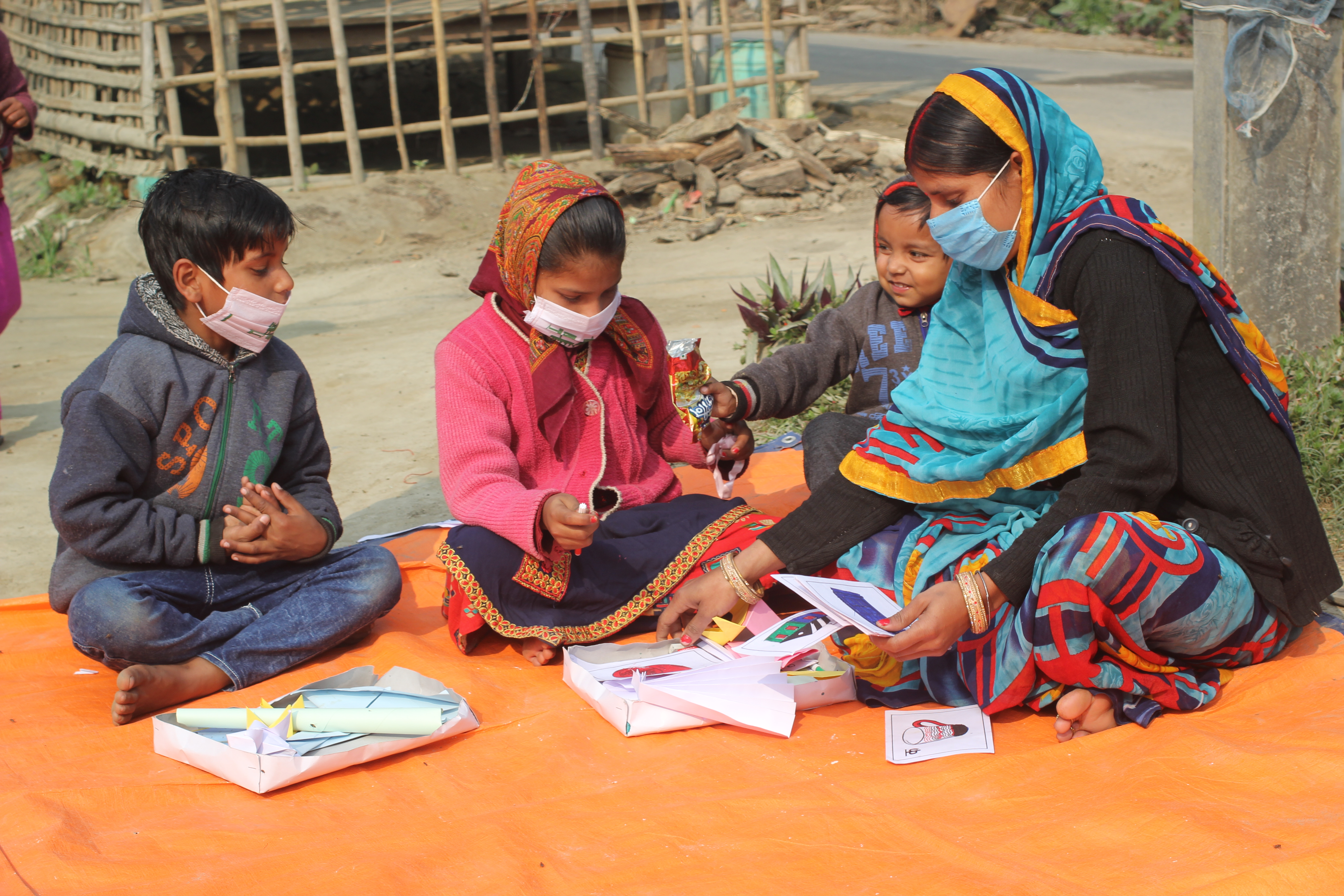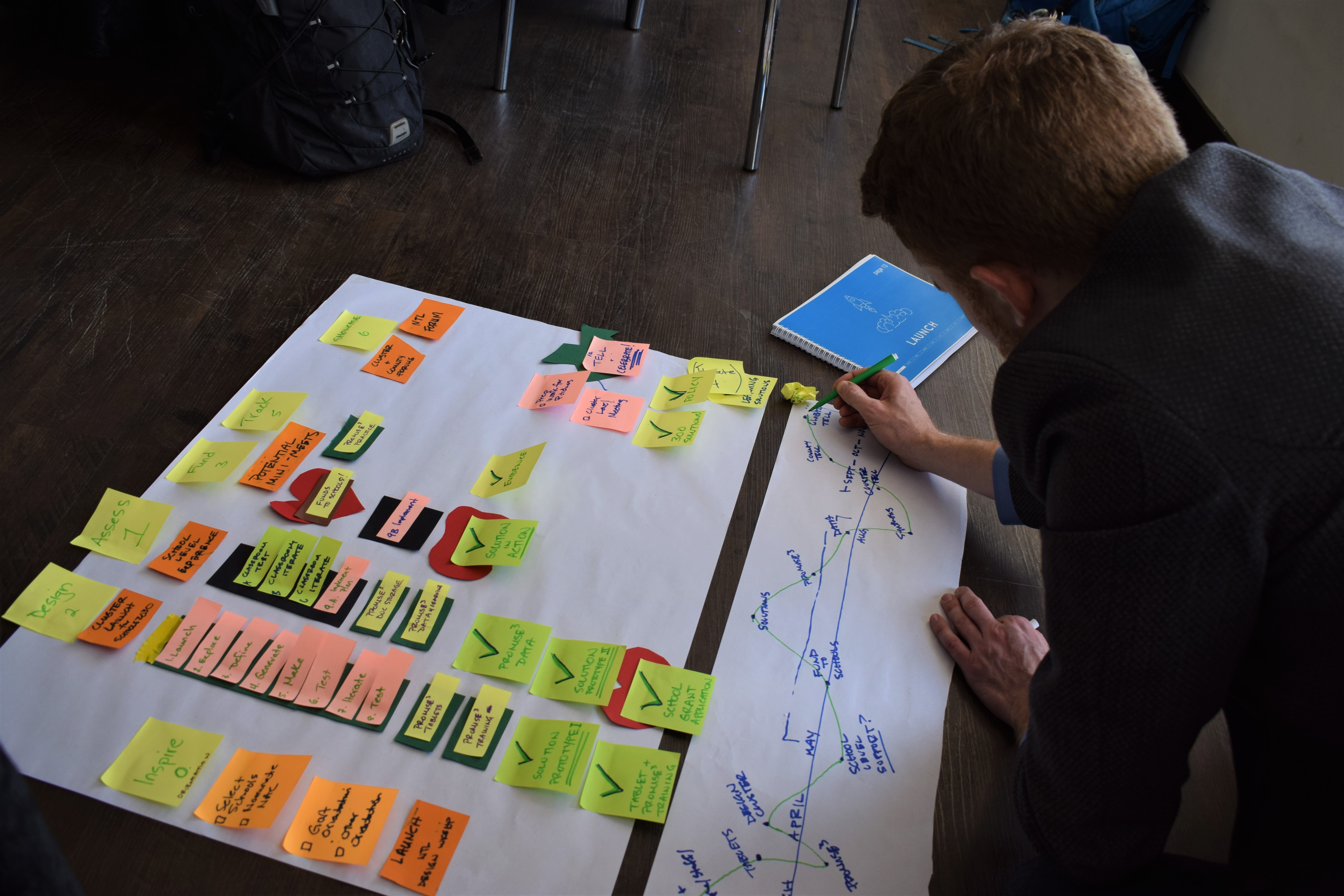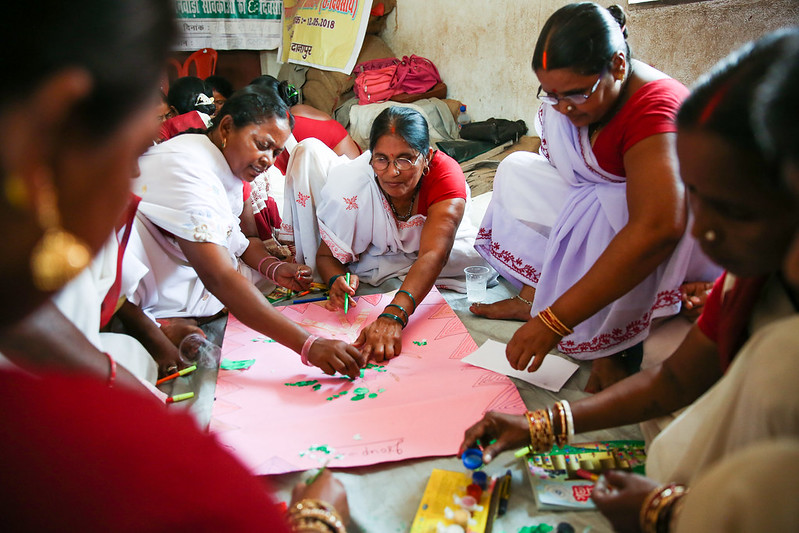After the intensive twelve-week course, the Schools2030 teams assembled to demonstrate how HCD has helped them to respond to the question: How might we support children’s learning during COVID-19?
In April 2020, when most of the world was engaged in lockdown, the three month Human-Centred Design (HCD) course that had been planned for education trainers quickly changed tack to respond to the challenges of the pandemic. Determined to lessen the impact of COVID-19 on students, families, and teachers, the ten teams got stuck into the task at hand (for more on the impetus behind these workshops, read this earlier article about the start of the course).
Whilst much attention was given to supporting children to learn during the pandemic, no one involved had lost sight of the original mandate of Schools2030 – to improve the holistic learning outcomes of every child. How this is achieved is central to the unique work of the programme, namely by using school-driven change, ensuring that those at the heart of the system – educators, students and families – are central to the process.
Understanding the core goals of the programme meant that the teams needed to think beyond the pandemic. Thus, the remit of the HCD course also included supporting schools to reopen in a COVID-compliant way and thinking through what sort of interventions might spark that spirit of enquiry and reduce the burden on educators and families in these new circumstances.
From Team Pakistan’s Easy Guide for Mother-Teachers, to Team Kenya’s Unaweza app that allows for Parent-Teacher collaboration over numeracy lessons, what came out of the course was a range of valuable and thoughtful interventions, all designed to fulfil on Schools2030’s central mandate in the COVID-19 era.

One of the projects that was commended by all was that of Team India who developed what they dubbed “The Big Box of Bold Ideas”. Through consultations with their communities, the team discovered that one of the problems experienced by parents – many of whom are illiterate – was the pressure to support their child to learn at home during lockdown. Whilst many digital resources were being developed to accommodate this, these leave behind the most under-privileged children of all – those without access to TV, internet or mobile phones.

In order to ensure “that the digital divide did not become a learning divide”, The Big Box of Bold Ideas was designed as a low-cost, learning-at-home kit, complete with word cards, puzzles, crafts and activities to complement the curriculum, and to be sent to families once a month. The group have engaged local women’s social enterprises to make the kits, thus also supporting income-generating activities in the programme areas.
“In some communities where we work, only 20-30% have access to WhatsApp, and many of these with limited data and poor internet connectivity…we had to think of ways caregivers can engage children without the internet.”
Arjun Sanyal, Senior Programme Officer, Aga Khan Foundation India
The boxes will soon be trialled with the early years’ cohort. and after three months the team will review, collect feedback and see what improvements or otherwise needed to be made before rolling out similar boxes to other grades. With funding from Schools2030, the prototype kits for the first grades are currently being created.
Team Pakistan also focused their work on supporting parents to engage with their child’s educational needs outside of the classroom, in this case by creating The Easy Guide for Mother-Teachers. Designed to support mothers with varying levels of literacy, the guide would comprise all sorts of resources, from lesson plans, fun activities, daily routine suggestions, video guides and more. The team also suggested that a mentoring system served by local teachers will be established to ensure that parents could use these resources to their fullest, as well as share any concerns they had with education professionals.
To ensure “that the digital divide did not become a learning divide”, The Big Box of Bold Ideas was designed as a low-cost, learning-at-home kit, complete with word cards, puzzles, crafts and activities to complement the curriculum, and to be sent to families once a month.
With so many innovations brewing by the time it closed, the course was regarded by the participants as a great success in presenting a range of locally-driven interventions. But there was another outcome that will become increasingly valuable over the ten-year lifetime of Schools2030. Given that most of those taking part will not be the end-users, the course has also been crafted to give the country teams the means to pass on the knowledge of how to design programmes holistically to educators within these communities.

Course facilitators Katie Krummeck and Gray Garmon (watch their video interview for more on their backgrounds in education and design), used the 12 weeks not only to showcase the process, but also to listen to participants and design a resource that could best help them to pass on their learnings to their networks. Thus, the Schools2030 HCD toolkit was created.
“We leveraged our experience as both designers and educators to scaffold the toolkit using the best practices of adult learning. We edited repeatedly for clarity, accessible language, and user experience.”
Katie Krummeck, HCD Course facilitator
The toolkit will ensure that the tenets of school-driven change for the better can be passed on to the hands of those closest to the issues, and in a way that would be the most useful to future trainers. Three separate toolkits have now been created to respond to different needs – one for facilitators, one for educators and one for school leaders.
There are no one-size-fits-all solutions to complex problems like poverty or lack of inclusion so ensuring children the world over are given the opportunity to flourish is going to require myriad ideas, lots of collaboration and constant consultation with stakeholders. That being said, it is believed that the HCD process, whilst it is not the solution, can be seen as the scaffolding that allows others to build the solutions that work for them. Delivering this scaffolding to 1000 schools in ten countries is now the aim of the country teams, and in this way, the process of facilitating true school-led change is now beginning.
